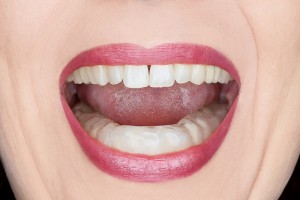How Stress Affects Your Oral Health
There are many national holidays during each month of the year. April features various holidays or observances such as “Stress Awareness Month”. Stress is something that just about every person experiences, and it can lead to chronic health problems when stress-relief methods aren’t utilized. Your oral health can show signs of too much stress, manifesting these signs as canker sores, other oral ulcers, bruxism, tension and more. Here is how stress affects your oral health and what you can do to reduce wear and tear on your teeth and gums from that stress!
Stress Awareness Month
April is Stress Awareness Month. There is an entire month devoted to spreading information about stress and how it can affect your mental and physical health. Stress is defined as “the non-specific response of the body to any demand for change.” Essentially, it means there is an outside force that is causing mental, emotional and physical responses in your body. One person might get headaches, while another will get tight knots in their pain from tension. Still others may develop sleep disorders or oral health issues like bruxism (more on that below).
Stress is simply a part of life, but studies show that the amount of stress people feel on a regular basis is starting to climb steadily upwards. Hence, the reason to make more people aware of how stress affects them. In 2011, the American Psychological Association reported stress was becoming a “public health crisis” because of the interference it has on a person’s ability to function normally over an extended period of time. Health issues brought on by stress can make that even harder. 1/3rd of children are stressed to the point of physical health issues such as headaches, insomnia, fatigue and oral health side effects like bruxism. 77% of teens and adults have physical health side-effects brought on from stress. During Stress Awareness Month, you can learn more about how stress affects your oral health and what to do about it.
Stress and Bruxism
One of the most common manifestations of stress when it comes to oral health is bruxism. This is the scientific term used for grinding your teeth. Early on in your sleep cycle, patients will clench or grind their teeth as a release for stress. The teeth can clench really hard together, which stresses out your teeth, jaws, facial joints and muscles. Or, they can grind together, going back and forth, which starts to erode the points of your teeth used for breaking up food. Over time, you may have smooth teeth because of the erosion.
Some patients will both clench and grind and they can do these things for years without realizing why they have recurring headaches, migraines, tooth fractures or breaks and facial weakening. Some patients will develop insomnia from waking themselves up at night. They may have pain in the ear area, pain in their neck, problems focusing from that pain and more. Your only symptom may even be receding gums or sensitivity to cold or hot drinks. However, a dentist can examine your teeth and will know right away that you are clenching or grinding your teeth due to stress. Unfortunately, these stress-relieving actions tend to happen when you are asleep and you don’t know it. We treat bruxism with custom-made mouth guards similar to what we do with TMJ, which is explained below.
A Word About TMJ
Do you have pain when chewing, even if the foods are soft? How about daily headaches or migraines, or pain that is centralized in your face, jaws, neck or ear area? These are all signs of temporomandibular joint disorder. When you open and close your mouth, the temporal bone and your mandible (jawbone) are both moving thanks to the temporomandibular joint. These two connecting bones are what the jaw joint is named for. In a patient with TMJ, the temporomandibular joint becomes inflamed or stiff, making movement painful. Stress can definitely lead to TMJ.
Some patients will also feel like their jaw joint is locking up on them. Others will audibly hear popping sounds or their jaw may seem to click or grate with movement, especially when opening or closing the mouth. Other common symptoms include:
- Difficulty with chewing, especially harder foods
- Mild tenderness to severe pain in the jaw area near your ears
- Pain in the exact area of the temporomandibular joint
- Problems with your jaws locking up, making it difficult to open and close your mouth
For TMJ, we provide patients with a hard, sturdy dental device that can take the pressure of clenching and grinding. It is thicker on top of your teeth to protect them from damage or breaking from the pressure the opposing jaw places on the other teeth. Because pressure is sent into the dental device, it takes that pressure off of your teeth and temporomandibular joint, helping you to be pain-free. Fairly quickly after receiving your device, you will start to see your symptoms go away if you wear the device as you should.
Stress Relief
We recommend that you find great methods of stress relief and that you get dental help. Stress-induced oral health issues don’t generally resolve overnight, but you can find relief from headaches, facial pain, broken teeth and more with a dental device the same week you get it. You may not be able to get rid of your stressors 100%. However, you can reduce the oral health issues that stem from it with the right care. If you get headaches, facial pain, have weak teeth, dental injuries or more, call Dr. Evanson’s office at (720) 409-0008 for your oral health consultation!
Leave a reply →









